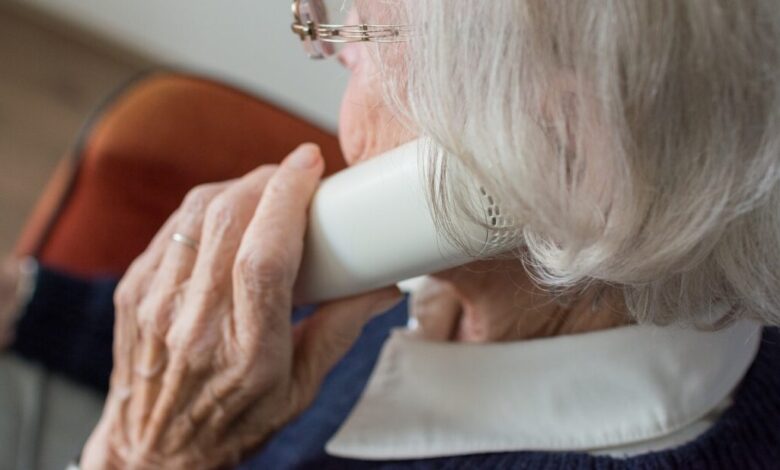How to Handle Elder Abuse Cases and Seek Justice for Seniors
Addressing elder abuse cases in Las Vegas requires a comprehensive approach that includes legal action to hold perpetrators accountable and secure justice for victims.

Elder abuse in Las Vegas has seen a troubling rise, with reported cases increasing by over 52% in 2024 compared to the previous year. As of September 2024, there were 4,336 cases of crimes against the elderly in the city. This surge highlights the urgent need for awareness and intervention to protect vulnerable seniors in our community.
Addressing elder abuse cases in Las Vegas requires a comprehensive approach that includes legal action to hold perpetrators accountable and secure justice for victims. Families and caregivers should remain vigilant for signs of abuse, such as unexplained injuries, sudden behavioral changes, or financial discrepancies. If abuse is suspected, it’s crucial to report it promptly to local authorities or Adult Protective Services to ensure the safety and well-being of the senior involved.
Recognizing the Signs
The initial key step is recognizing elder abuse. These symptoms can manifest in physical, emotional, or monetary forms. Unexplained bruises, fractures, or burns are examples of physical signs. The expression of emotional abuse can also be seen in the form of rapid shifts in mood, staying in isolation, or feelings of melancholy. Signs of financial exploitation might include strange banking transactions or sudden, unexplained money shortfall. Awareness of these signs can aid early detection and protect against more significant harm.
Understanding the Types
There are different forms of elder abuse. While physical abuse is meant to harm, emotional abuse may be verbal attacks or threats. Neglect is an absence of care by a caregiver who does not support an elder’s basic needs. Financial exploitation is taking the assets of a senior without their permission. Finally, sexual abuse is a serious offense, although it is rare. Intervention is imperative in all these cases as each type necessitates varying approaches for resolution.
Taking Immediate Action
Once you suspect abuse, action is necessary. The safety of seniors is a priority. The quickest responses usually come from calling local authorities or adult protective services. Taking pictures or writing down the essentials is a case-winner. If it is safe, speaking to the senior may illuminate the situation. Elder abuse must be tackled promptly and with care, as this form of personal injury can adversely impact the lives of seniors.
Exploring Legal Avenues for Justice
It is crucial to pursue legal options for justice for seniors when needed. When you file a police report, you also initiate an official investigation. Elder law attorneys/advocates provide extensive guidance and counseling. Civil cases may award damages, while criminal charges punish the offender. Knowing about these legal options can help families and caregivers in their journey to get justice.
Building a Support System
A strong support system makes it possible to deal with elder abuse cases. A network of caregivers comprises family members, friends, and organizations within the community. They provide emotional support and suggestions. The presence of specialized healthcare professionals ensures that medical and psychological help can be provided when needed. Altogether, these components form a safety net for the impacted senior.
Granting Seniors Power Through Learning
Education is a meaningful way to address elder abuse. Older adults are empowered and more confident in maintaining their independence when they are provided with tools to help them understand their legal rights and resources. Workshops or seminars on financial literacy, personal safety, or legal rights can equip seniors with the necessary skills. Promoting open communication with family members also helps in the early identification and prevention of such abuse.
Ensuring Community Involvement
Part of the answer to curtailing such abuse lies in building strong communities that can respond to elder abuse. Public awareness campaigns and educational programs can help educate people and raise awareness. Local organizations can join efforts to create task forces focusing on elder safety. Promoting volunteering in senior communities helps seniors remain active, feel connected, and stay alert. To eliminate elder abuse, people must stand united as a community.
Initiating Policy Changes
The push for policy changes is essential to the fight against elder abuse. Supporting legislation to strengthen protections and penalties against abusers is vital. Policymakers need to know that this is a problem worth fighting for. Funding for elder care programs can lead to public support required to increase the number of elder care programs. Seniors nationwide can benefit from systemic changes brought about by collective advocacy efforts.
Conclusion
Tackling elder abuse requires a multi-pronged approach involving awareness, action, legal intervention, and community involvement The battle against elder abuse can be strengthened by educating seniors about their legal rights and protective policies and advocating for them. Communities must work together to keep seniors safe and give them a peaceful, respectful, and dignified life. With each step, communities go closer to a world free of elder abuse, where the worth and dignity of all seniors are protected.











